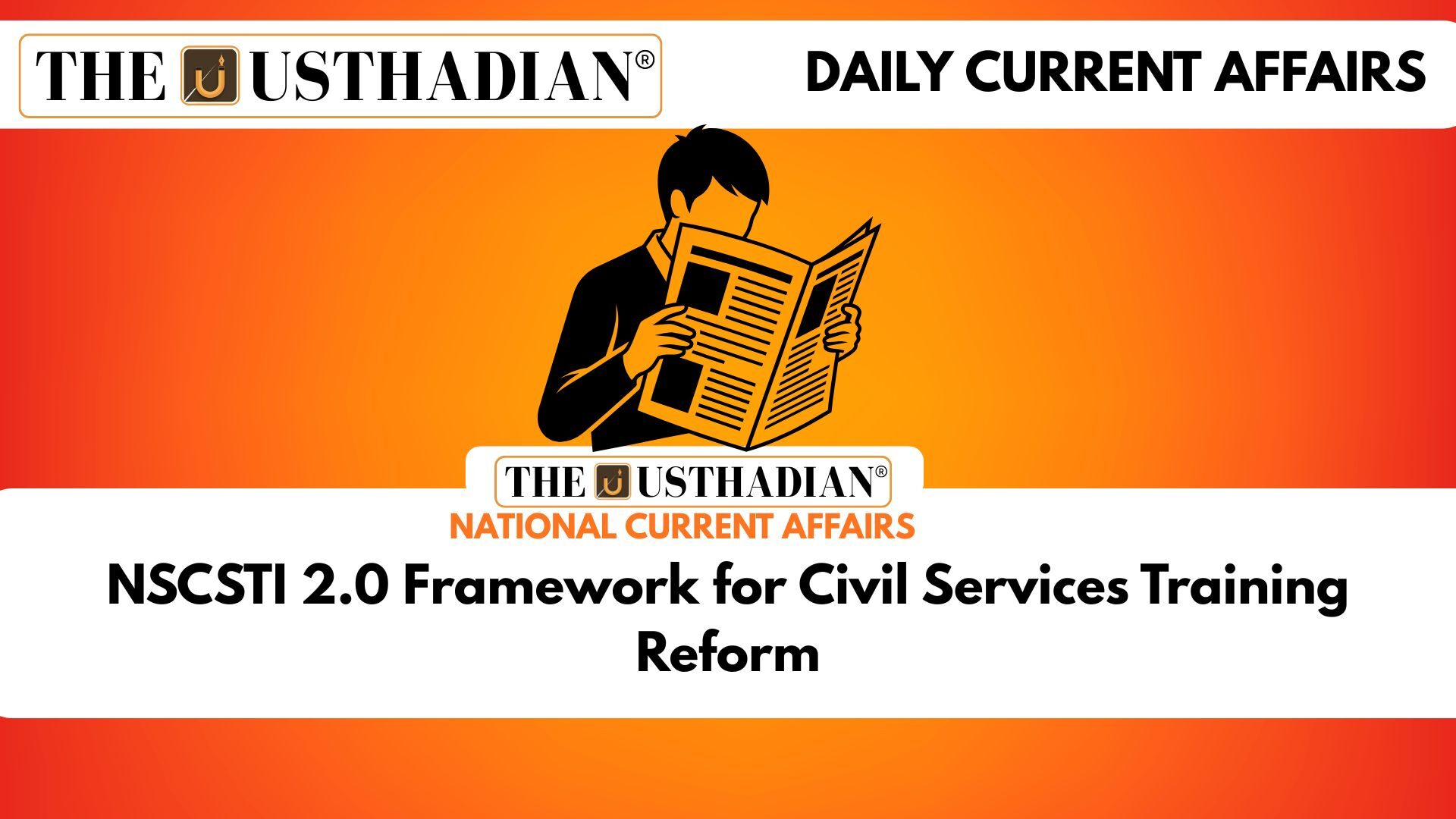National push for reform in civil services training
NSCSTI 2.0 Framework for Civil Services Training Reform: NSCSTI 2.0 marks a transformative step in India’s civil service ecosystem. Launched by Union Minister Dr. Jitendra Singh, this upgraded framework aims to standardize and modernize training across Civil Services Training Institutes (CSTIs) under the broader reform umbrella of Mission Karmayogi.
Why a new framework was needed
The earlier NSCSTI model laid the foundation for training standards. However, the rising complexity of governance and the integration of digital learning made it essential to evolve. NSCSTI 2.0 was designed after assessing inputs from over 160 CSTIs, making the model inclusive and field-tested.
Vision of NSCSTI 2.0
The new framework aspires to create a future-ready and citizen-centric bureaucracy. Key objectives include:
- Encouraging institutional excellence
- Promoting continuous upskilling
- Incorporating AI-driven and hybrid learning models
- Fostering cooperative federalism
- Enabling cross-institutional learning
Static GK fact: India’s first dedicated training institute for civil services, the Lal Bahadur Shastri National Academy of Administration (LBSNAA), was established in 1959.
Key upgrades in NSCSTI 2.0
Several impactful changes have been made:
- Evaluation metrics reduced from 59 to 43 to simplify assessment
- Emphasis on Indian Knowledge Systems (IKS) and Amrit Gyaan Kosh (AGK) content integration
- Enhanced focus on hybrid learning tools and digital platforms
- Alignment with the Karmayogi Competency Model (KCM)
- Applicability extended to Central, State, and Urban Local Body training institutes
- Transparent assessment via a reactivated accreditation portal
- Encouragement for public-private learning exchange and adoption of global best practices
Static GK Tip: The Capacity Building Commission (CBC) was established in 2021 to drive civil service reforms under Mission Karmayogi.
Domestic and international impact
The framework is part of India’s strategy to build a more accountable, innovative, and effective administrative system. The global interest from countries like Bangladesh, Maldives, and South Africa reflects India’s growing role as a model for administrative transformation.
Static Usthadian Current Affairs Table
NSCSTI 2.0 Framework for Civil Services Training Reform:
| Topic | Detail |
| Full Form of NSCSTI | National Standards for Civil Services Training Institutes |
| Launch Year of NSCSTI 2.0 | 2025 |
| Initiated By | Union Minister Dr. Jitendra Singh |
| Governing Body | Capacity Building Commission (CBC) |
| Previous Metrics | 59 |
| Revised Metrics | 43 |
| Linked Competency Model | Karmayogi Competency Model (KCM) |
| Knowledge Repository | Amrit Gyaan Kosh (AGK) |
| Global Interest Countries | Bangladesh, South Africa, Maldives |
| Flagship Reform Mission | Mission Karmayogi |








